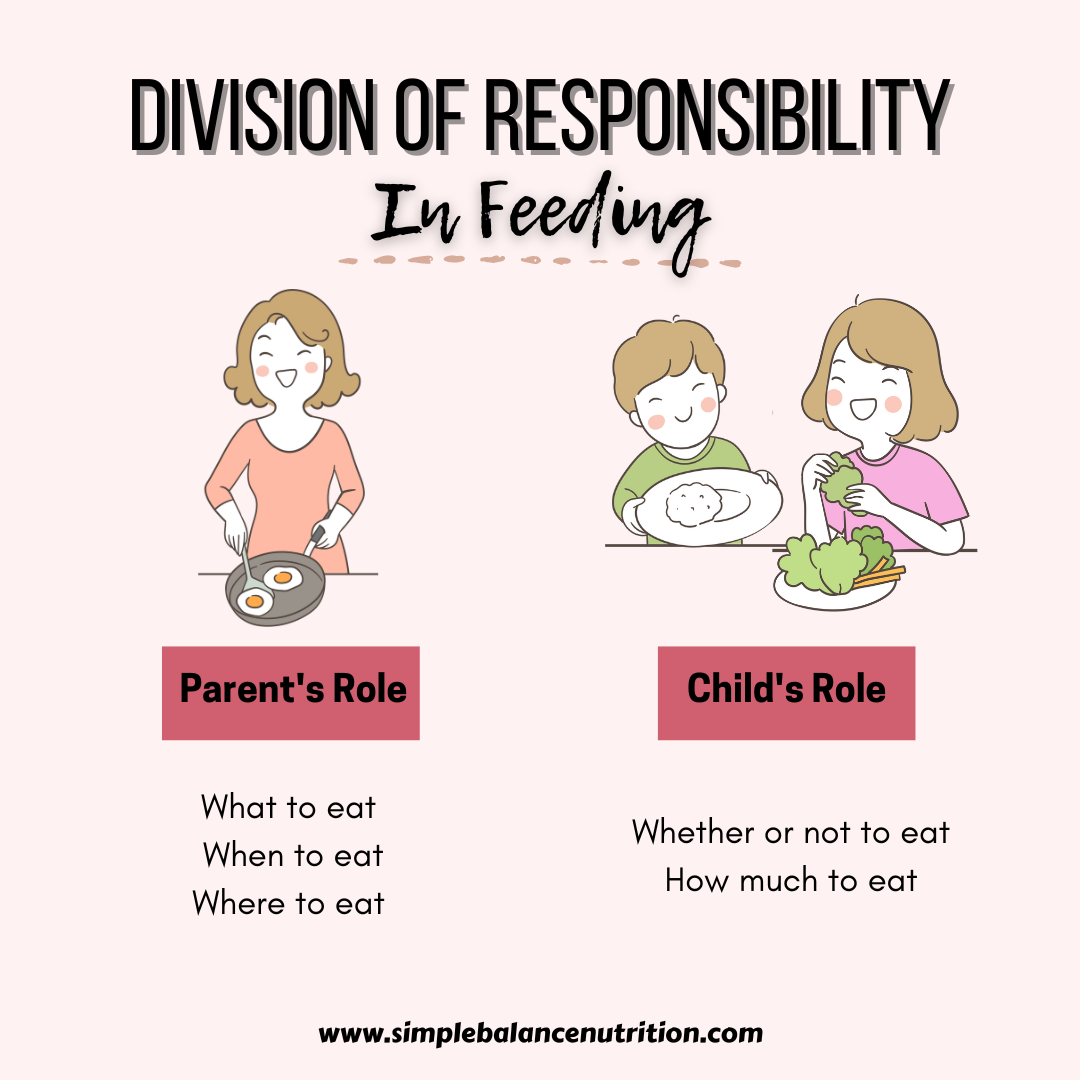In my nutrition counselling practice, I often meet with frustrated and worried parents of picky eaters. Most scenarios, children are in charge of what, when and where food is served, and parents are trying to bribe or force their kids to eat at least two bites of some nutritious foods. This feeding relationship are completely reversed and parents have no idea.
THE FEEDING RELATIONSHIP
The “Feeding Relationship” (Division of Responsibilities in Feeding) is a concept developed by Ellyn Satter, a dietitian and social worker. There are separate roles in feeding for the parent and for the child.
If these roles are respected, the child will be less likely to be picky and will grow up having a healthy relationship with food.
PARENT’S FEEDING RESPONSIBILITIES
When
There should be structured meal and snack time every day, so that your child knows when to expect another chance to eat. Children should be offered 3 regular meals and 2 or 3 snacks in between. Avoid grazing or snacking throughout the day. This timing structure will help your child build up a healthy appetite for the next meal.
Where
The child should be eating at the table with the family, with no distractions like TV or IPad. When your children eat in front of a screen, they aren’t focusing on their foods, or their inner hunger, or fullness signals; they’re instead focusing on what they’re watching.
What
As a parent, you get to decide what your child eats. Ideally, you should offer foods from each food group (with different colours, flavours and textures) at every meal if you can – a fruit or vegetable, a grain product and a meat or alternative and dairy.
Example: blueberries (cut in half) with slices of bread, cooked egg yolk and yogurt.
At family meals, your child should be served the same foods that the rest of the family is eating.
BABY/TODDLER’S FEEDING RESPONSIBILITIES
How Much and Whether
It is completely up to your child to take the lead role in eating. The child is responsible for how much or whether to eat the foods that you’ve served. Many parents are concerned their child is not eating enough, however children are good at regulating their appetites and will not starve themselves. They may eat a lot one day and almost nothing the next and that is ok. If they don’t eat much at one meal or snack, they’ll make up for it in the future meals or snacks, or even by the end of the week. Read 20 Strategies to Raise a Mindful Eater. This way you do not set up power struggles with eating.
Remember, it might take up to 15 tries before the baby or child will actually eat the food.
BOTTOM LINE
We need to take a step back and let our kids decide if they are going to eat their food and how much they are going to eat. No pressure, no forcing and no bribing. We, as a parent, have to respect their hunger and fullness cues. If we’re respecting this feeding relationship, the power struggles and stress around your family table will dramatically decrease.



[…] Satter, Registered Dietitian Nutritionist and Family Therapist, developed the Division of Responsibility in Feeding approach to mealtimes. The crux of it is that roles should be divided up between the parent and the child in […]
[…] By following the principles of DOR, you can create mealtimes that are more peaceful, reduce stress around eating, and raise children who are capable and confident eaters. […]